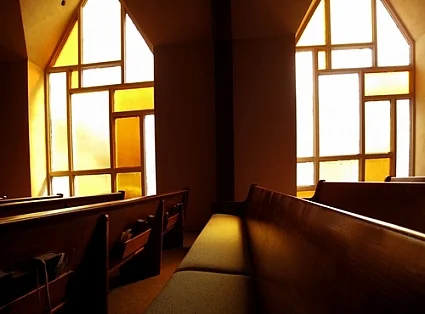As we gather as a community of faith in the presence of God, we gather with the expectation to worship God by responding to His revelations. Worshiping God in a worship service, amidst all elements of worship, should lead to spiritual formation in our lives. Yet we have often disregarded the potential of spiritual formation to occur within each element of worship and instead, have relied solely upon the sermon to form us spiritually. We have relegated all other worship elements (songs, prayers, communion, etc.) to lead to the preaching thus encouraging the mentality that these are preliminaries to the main event – the sermon.
Our lives should be spiritually formed by each element of the worship service, not just the sermon. The sermon should be seen as one offering among many offerings during the corporate gathering. There are no preliminaries to get out of the way. Each element in the worship service is an act of worship offered to God, and as such serves to form us spiritually. I call this focus “worship formation.” We are becoming more like Christ (spiritual formation) as we respond to His revelations (worship).
If we are to understand how spiritual formation occurs in each element of worship within the worship service, we must look at each element in light of spiritual formation.
MUSIC
The songs in our worship services
are to a great degree formative. The
songs we sing in church lodge themselves into our minds as truth. As the worshiper sings truths found within
songs, their faith is strengthened, their theology is founded and their spirit
is formed.
PRAYER
It could
be said, worship prays God’s story.
As a result of Christ’s redeeming work, public prayer ushers all of
creation to the Father through Jesus Christ by the Spirit. As we pray we join with God on the journey of Him changing us from the
inside out by the power of Christ working within. Our prayers shape that which we are, both on the inside and
on the outside.
SCRIPTURE READING
The use of Scripture is
foundational in celebrating God in worship. The Bible has always been central to the life of the
Christian church. The ancient
Hebrew stories, songs, prophecy and wisdom that permeated the Jewish world of
Jesus’ day profoundly shaped even Jesus himself as he lived on the earth. The earliest Christians explored the
Scriptures in an attempt to understand what Almighty God had accomplished
through Jesus, and as a result, they planned to shape their lives
accordingly. Today, we continue to
study the Scriptures to discover how to live and thus, how to worship.
COMMUNION
Our time of worship at the Table should leave
us changed. For when we enter the
presence of God, our hearts should burn within us as we remember that the one
who was crucified, dead, buried, and rose again, is now alive and within
us. This leads the worshiper to
the mysterious greatness of God found at the Table. Through this process, we are being transformed as we are
drawn closer to Christ.
SERMON
The ministry of proclaiming the
word of God through the preaching of a sermon must be an act of worship. The purpose of the Word of God is to
reveal the God of the Word. In
Scripture, the people who saw God were never quite the same again. Their lives were transformed. So it should be every worship service
in which the Word is proclaimed.
SILENCE
Silence has long been an important
aspect of personal and corporate worship.
It is a time to quiet the soul in order to become receptive to God’s
revelation. Embracing times of
silence in worship allows God the opportunity to speak. Much of what else we do in worship is
directed toward God. In every
element of worship, there should be aspects of revelation and response, yet
silence is primarily the time to allow God to be the communicator as we do
nothing else but listen to His voice.
As we hear from God we open ourselves to the opportunity to be transformed by the
renewing of our minds. In
silence, God is given permission to form us from within in a way that only He
can.
GIVING
It is within forms of
giving which the disciple of Jesus experiences a renewed and transformed life,
becoming as the very nature of Christ, becoming more like Jesus, whom Himself
gave His life as an act of worship to the Father.
BAPTISM
In baptism we find our identity and
are incorporated into Christ’s life and His body – the church. Through baptism, God draws us near to
Himself. For those who have
previously been baptized and are observing someone else’s baptism, the
worshiper should remember their own baptism allowing God to refresh the sign
and seal of regeneration upon their own lives. Spiritual formation through baptism should continue to occur
instead of being a one-time occurrence.
CONCLUSION
God desires for spiritual formation to occur any time, any
place, in every way. Each element
of worship within the worship service should lead the worshiper to be:
…transformed by the renewing of your mind, that you may prove what is that good and acceptable and
perfect will of God.
(Romans
12:2)
As we worship God, we are spiritually formed becoming more like Christ and as a result, we engage in “worship formation.”


